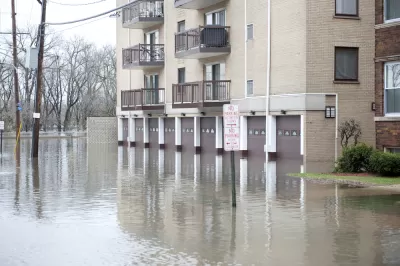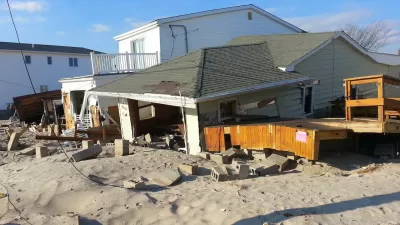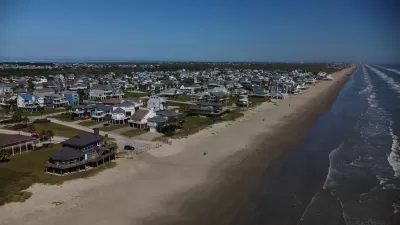The Federal Emergency Management Agency undercounts the humber of homes at substantial risk of flooding by some 70 percent, according to a report released this week.

Andrew Freedman, Brady Dennis, and Laris Karklis report on a report released Monday by the First Street Foundation, which finds that "there are at least 6 million households that are unaware they’re living in homes that have a 1 percent chance of flooding in each year — putting them within a '100-year' flood zone."
That total means there are nearly 70 percent more homes at substantial risk of flooding than included within the Special Flood Hazard Areas defined by the Federal Emergency Management Agency. Homes included in Special Flood Hazard Areas are eligible for the National Flood Insurance Program.
Moreover, the number of at-risk homes is expected to grow as the effects of climate change worsen in coming decades.
The nonprofit flood research and communications group First Street Foundation released the report to level the playing field between buyers and sellers, and democratize specialized flood risk analyses that insurance companies and consulting firms are producing but charge hefty sums to access, according to Freedman, Dennis, and Karklis. The report includes free flood risk maps down to the property level for 142 million properties in 48 states, and ranks cities by the percentage of properties at risk. Cape Coral, Florida leads the list, with 69 percent of its properties at risk in 2020—a figure expected to rise to 84 percent by 2050.
FULL STORY: Millions of homeowners face flood risks without realizing it, and climate change is making it worse

Planetizen Federal Action Tracker
A weekly monitor of how Trump’s orders and actions are impacting planners and planning in America.

Maui's Vacation Rental Debate Turns Ugly
Verbal attacks, misinformation campaigns and fistfights plague a high-stakes debate to convert thousands of vacation rentals into long-term housing.

Cuomo Is the Candidate of Both NIMBYs and Developers. What Gives?
In the New York City mayoral race, odd bedfellows align to preserve the housing status quo.

The Subversive Car-Free Guide to Trump's Great American Road Trip
Car-free ways to access Chicagoland’s best tourist attractions.

San Antonio and Austin are Fusing Into one Massive Megaregion
The region spanning the two central Texas cities is growing fast, posing challenges for local infrastructure and water supplies.

Charlottesville Temporarily Has No Zoning Code
A judge ordered the Virginia city to throw out its newly revised zoning code, leaving permitting for new development in legal limbo.
Urban Design for Planners 1: Software Tools
This six-course series explores essential urban design concepts using open source software and equips planners with the tools they need to participate fully in the urban design process.
Planning for Universal Design
Learn the tools for implementing Universal Design in planning regulations.
Heyer Gruel & Associates PA
JM Goldson LLC
Custer County Colorado
City of Camden Redevelopment Agency
City of Astoria
Transportation Research & Education Center (TREC) at Portland State University
Jefferson Parish Government
Camden Redevelopment Agency
City of Claremont





























